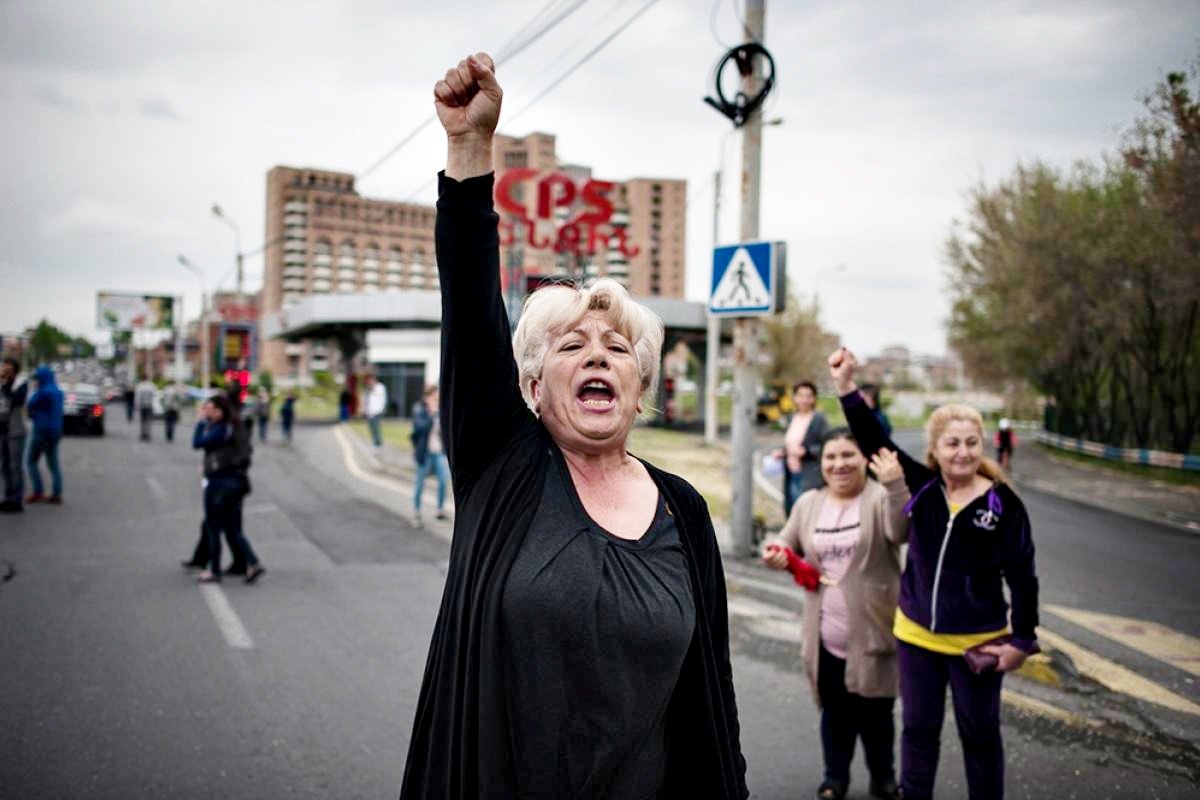(PONARS Eurasia) Corruption coupled with related economic stagnation has spurred waves of recent protests in countries like Russia in 2017 and, more recently, in Armenia in April 2018. But commentators have noted that even in these cases, there are still many citizens unwilling to protest and who seek help from the regime, not its downfall. When does corruption actually undermine support for a regime, or even diminish trust among groups in a society? Recent work presented at the conference of the Midwest Political Science Association in Chicago (April 5-8, 2018) suggests important insights into the role of corruption.
First, corruption can undermine trust in government. Celeste Beesley and Darren Hawkins conducted original survey experiments in Peru and Ukraine, seeking to see whether knowing that government officials participated in corrupt behavior would undermine government legitimacy. The evidence suggests mixed results which may be highly dependent on contextual factors. Beesley and Hawkins find evidence in both Ukraine and Peru that mentioning corruption by local, unelected officials—what they call petty corruption—decreases trust in government. By contrast, mentioning corruption by national election officials—what they refer to as grand corruption—has much less influence on trust in government. Providing information about whether the effects of corruption are positive or negative, however, differ for Peru and Ukraine, and differ within each country across regions, for instance, across Eastern and Western Ukraine.
In short, their results suggest that we know corruption matters, but pinning down its precise effect may be tricky. This makes it difficult to know, for instance, whether the chronic corruption in countries like Russia and Armenia as well as many others will result in any kind of sustained uprising.
Second, work on corruption also continues to suggest that it undermines trust among groups within a country. Such work may suggest another route by which corruption undermines support for a regime. Perhaps corruption undermines trust which leads to more dissatisfaction and/or a more poorly functioning government which in turn, ultimately, undermines the functioning of a country. A long line of research tells us that trust matters including recent, novel findings by Nora Webb Williams. Williams find that rural communities in Kazakhstan fared better when there were legacies of high levels of horizontal trust, here meaning trust between neighbors.
Ekaterina Borisova, Denis Ivanov, and Nathasha Gimpelson presented recent research at MPSA in which they examine how institutional quality influence trust and support for redistribution. They argue that more trusting people will support for redistribution among those who might be suspected of cheating, but only in places with well- functioning institutions in which welfare fraud will be punished.
They test their argument using the Life in Transition II survey which includes 38,000 respondents from 35 countries. In countries with lower levels of corruption, individuals who are more trusting also respond that the poor and unemployed are deserving of support. This is an interesting and important finding: the converse, of course, means that in countries where levels of corruption are higher, more trusting people do not think the poor and unemployed are more deserving of support. This emphasizes the need for both trust and well-functioning institutions to accomplish good outcomes.
The findings from both studies are especially significant for understanding the politics of countries like Russia and others in the post-communist sphere. Corruption itself breeds discontentment, but corruption also results in poorer policy outcomes through more indirect paths; it undermines trust and support for government services that might mitigate inequalities and help the poorest in society. Both pieces of research, then, suggest we should adopt a more nuanced understanding of how, when, and why corruption influences support for a government or regime.
Sarah Wilson Sokhey is an Assistant Professor in the Department of Political Science at the University of Colorado, Boulder, a Faculty Associate at the Institute of Behavioral Science, and an Associate Fellow at the International Center for the Study of Institutions and Development at the Higher School of Economics in Moscow, Russia.
Also see by Sarah Sokhey, “Social Policy & Regime Type,” April 27, 2018.
Homepage image credit










